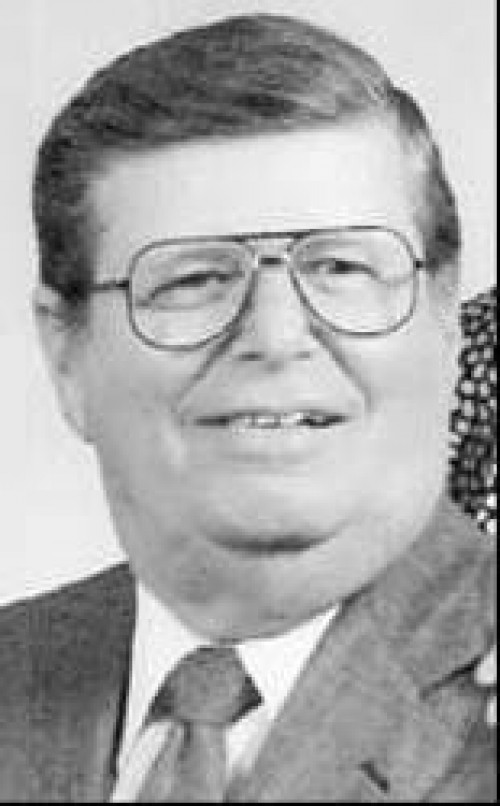March 26
March 26, 2008
Howard Edward Green
March 28, 2008In the spring of 1968, Obie Cleveland Hill was a talented high school basketball star trying to decide which college scholarship offer to accept.
Then one day, the Moss Point, Miss., native and two teammates were asked to take on a cause greater than merely putting a ball through a hoop.
“He [Nicholls coach Don Landry] said he wanted some players who would break the color barrier and asked if we would come to Thibodaux and play for Francis T. Nicholls College,” said Dr. Hill, today the interim Dean of Student Life at Nicholls State.
“My initial thought was, ‘No way, no how.”
Nicholls began admitting black students five years earlier, but its athletic programs were still all-white.
Landry convinced Hill of the value of integration and his team-oriented style of play. Hill accepted the challenge and became the first African-American athlete to wear a Colonels uniform.
Once on campus, Hill found the environment less hostile than he feared, but the reaction of teammates was mixed.
“Some were very welcoming and later on became not as friendly,” said Hill. “Some were very cautious around me. Some guys I never won over.”
While home fans never gave Hill strife, crowds from other small Southern colleges spewed racial venom his way.
“There were a couple of problems on the road, but not many where fans made racial comments I didn’t care for,” said Hill. “Belhaven College (Mississippi) was not integrated at that time we played them; nor Northeastern Louisiana (now UL-Monroe). But when I was on the court, I never paid attention to them. I was focused on winning the game.”
By the time he graduated, the 6-foot, 8-inch basketball star left an indelible mark on the school record books becoming NSU’s all-time leading scorer with 1,606 points, and rebounder with 1,174. He also led NSU to its first post-season tournament his senior year, the National Association of Intercollegiate Athletics playoffs in 1972.
That summer he was drafted by the NBA’s Seattle Supersonics in the 14th round and by the Kentucky Colonels of the old American Basketball Association. The Sonics did not invite him to tryouts but Kentucky did. Despite not making the team, Hill has no regrets.
“I decided early on I wasn’t going to linger. I was going to give it my one best effort and if it didn’t work out, so be it,” Hill said. “I had my degree [Bachelor of Arts] in Liberal Arts and was going to study law.”
Instead, he joined the Army, becoming a 4th Class specialist. During his three years in service, Hill decided to pursue a new passion: Teaching.
He returned to Nicholls in 1975 to accept a student assistant coach position while he earned his teaching certificate. A year later, he got his first teaching assignment at East Thibodeaux Junior High School. He taught math and civics and served as head basketball coach and assistant football coach during his tenure.
In 1979, Hill was back at Nicholls, this time as assistant men’s basketball coach. His six-year stint would be the first of many positions he would occupy at NSU over a quarter-century.
By 1985, Hill left the bench to instruct men and women how to be teachers in the classroom.
He joined Nicholls State’s faculty as a professor of Education (’85-’93), then as Director of Student Teaching (’93-’97).
Hill says the important lesson he tried to convey to students is role they will play in their pupils’ development.
“I tried to conceptualize more than anything that they are shaping a person’s life for as long as they live,” said Hill.
“If they do it right, that kid has a shot of being productive in society. If they do it wrong, there will be terrible consequences. I’ve been to too many prisons and seen where the lack of education failed them. It really is the most important profession. Some students never get that.”
After leaving NSU for a year to become Dean of Education at Southern University, he returned in 1998 to take the same post at Nicholls.
Reflecting on the evolution of education during his 40 years in Thibodaux, Hill sees a bright future for both students and teachers.
“There have been more changes in Louisiana’s education system the last five or six years than in all the other years combined,” declared Hill. “We haven’t seen the results yet, but if we stay on the path we’re on, you’re going to see some positive changes. Teachers are getting paid more; we have standards for measuring progress and accountability.”
Hill retired from Nicholls in 2006 only to discover after one year that he hated having nothing to do.
When the call came about the open Dean of Student Life job in July 2007, he quickly accepted, even if it is just for a year.
At age 58, the quiet unassuming Hill built bedrock life on the bayou. He has been happily married to wife Lois for 35 years and raised two daughters, Demitra and Kristina, both grown.
Some have called him a pioneer for his role of integrating Nicholls athletics. He does not view himself that way.
It is not the position of power forward where Hill has made his most lasting impact on the Thibodaux community.
It is the roles of teacher and coach that his influence has been felt strongest by two generations of young people.
Dr. O. Cleveland Hill in his office inside the Bollinger Student Union. * Photo by KEYON K. JEFF












